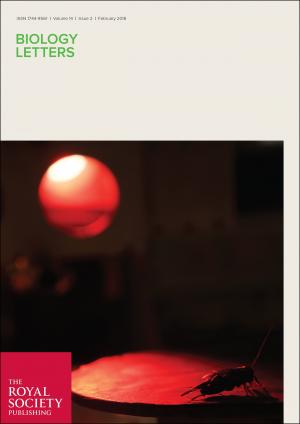 A biology journal is investigating concerns about a 2014 paper by a marine biologist who was found guilty of misconduct last year.
A biology journal is investigating concerns about a 2014 paper by a marine biologist who was found guilty of misconduct last year.
In December, Uppsala University concluded that Oona Lönnstedt had “fabricated the results” of a controversial 2016 Science paper (now retracted), which examined the harms of human pollution on fish. (Lönnstedt’s supervisor Peter Eklöv was also found guilty of misconduct and had a four-year government grant terminated.)
Earlier this month, Biology Letters flagged the 2014 paper, on which Lönnstedt is corresponding author, with an expression of concern while it investigates. The research, which explores hunting behaviors in fish, was performed while Lönnstedt was a doctoral student at James Cook University in Queensland, Australia, where she received her PhD in 2014.
Surayya Johar, an editor at Biology Letters, told Retraction Watch that a reader contacted the journal last year with questions about the data, and the journal’s initial investigation revealed:
The number of fish reported to the facility was different to what was included in the manuscript sent to Biology Letters.
Given the discrepancy, Johar said the journal is probing further and, in the meantime, published an expression of concern to alert readers. The paper, “Lionfish predators use flared fin displays to initiate cooperative hunting,” has been cited 10 times since it was published in 2014, according to Clarivate Analytics’ Web of Science.
Johar told us:
We believe this is unrelated to the study reported in Science as the experiments were performed at different times and at different facilities
According to The Australian, James Cook University says it “intends to review” the research underlying Lönnstedt’s thesis “in light of the serious issues raised about her later research” at Uppsala University in Sweden. Lönnstedt’s CV states that all five chapters in her thesis, “Predator-prey interactions and the importance of sensory cues in a changing world,” have been published in “internationally acclaimed” journals. It’s not clear if the Biology Letters paper includes data that was part of her thesis.
We contacted Lönnstedt, as well as her two co-authors, Douglas Chivers and Maud Ferrari, both based at the University of Saskatchewan in Canada. Lönnstedt has not responded, and Chivers declined to comment until Biology Letters has finished its investigation.
Johar told us that the journal has “no immediate plans to investigate other papers from the authors:”
Our focus will remain on what occurred specifically in the Biology Letters article. … this may of course change if other publications are involved with this study.
Hat tip: Rolf Degen
Like Retraction Watch? You can make a tax-deductible contribution to support our growth, follow us on Twitter, like us on Facebook, add us to your RSS reader, sign up on our homepage for an email every time there’s a new post, or subscribe to our daily digest. If you find a retraction that’s not in our database, you can let us know here. For comments or feedback, email us at [email protected].